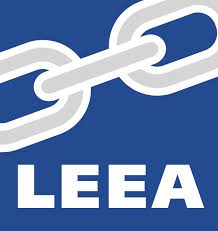 Ensuring that equipment is properly specified and fit for purpose is clearly critical to any safe lifting program. However, the fact remains that most accidents are the result of human error. Straightforward equipment failure is relatively rare as a cause of serious problems. So when things go wrong, the roots can usually be traced back to a basic lack of planning, compounded by the use of inadequately trained staff. As a result, the latest generation of health and safety legislation tends to emphasize the key role played by the ‘human factor’ in overhead lifting operations.
Ensuring that equipment is properly specified and fit for purpose is clearly critical to any safe lifting program. However, the fact remains that most accidents are the result of human error. Straightforward equipment failure is relatively rare as a cause of serious problems. So when things go wrong, the roots can usually be traced back to a basic lack of planning, compounded by the use of inadequately trained staff. As a result, the latest generation of health and safety legislation tends to emphasize the key role played by the ‘human factor’ in overhead lifting operations.
In the UK, for example, LOLER (Lifting Operations and Lifting Equipment Regulations) adopts a modern, risk based approach. Rather than being unduly prescriptive, it requires that ‘competent’ staff are used for all aspects of load lifting operations, including test and examination of the equipment. This certainly allows employers a welcome degree of flexibility, and recognizes the fact that the skills and experience needed to assess a sling or shackle are significantly different than those required for, say, a fully automated overhead travelling crane.
However, such freedom is clearly not without pitfalls and dangers. In particular, how exactly should ‘competence’ be defined? After all, one of the biggest challenges faced by the industry is the fact that too many employers simply fail to recognize overhead lifting as a specialist discipline that requires specialist skills. Perhaps this is because so much of the equipment involved is long established and apparently straightforward. As a result, there’s an unwelcome tendency to let ‘generalists’ undertake safety-critical tasks. Unfortunately, the results of this attitude are often reflected in lifting-related accidents, which remain a significant cause of death and serious injury in workplaces around the world. But even employers that recognize the need for a properly focused approach to overhead lifting can struggle to identify what competence actually means in practice.
Clearly there will always be a range of views on this subject. For the purposes of thorough examination of lifting equipment, LEEA’s Code of Practice defines competence as a combination of both theoretical knowledge and practical experience of the equipment concerned. Furthermore, the Association’s long-established Diploma qualification is widely recognized as demonstrating the first part of these requirements. To reinforce this message, ‘TEAM’ identity cards are now issued to employees of member companies that have passed the Diploma, and these are accompanied by logbooks in which the holder can record his or her practical work experience in the overhead lifting sector. The aim is quite simply to provide detailed and independent evidence of the holder’s competence as regards the test, examination and maintenance of overhead lifting equipment.
What has been really interesting over recent years is the enthusiasm with which this approach has been adopted right around the globe. Originally established as the The London Chain Testers and Manufacturers Association nearly 70 years ago, today the LEEA is a truly international organization, with approximately half of its 650-plus members based outside the UK. As a result, much of the Association’s work currently involves the re-shaping of training, qualification and accreditation services to suit the requirements of members in different regions of the world. And whilst this is very much a two-way process, it is clear that the fundamentals of the LEEA philosophy already enjoy widespread support.
Whilst it is obviously encouraging to see an ever increasing demand for high quality training and qualifications, there is still a huge amount of work to be done to raise the status of engineers working in the overhead lifting sector, and to ensure that the welcome flexibility provided by much modern health and safety legislation does not simply provide a loophole through which employers can escape their responsibilities. Organizations such as LEEA have a key role to play in providing a forum for debate, and a voice for those who believe in the importance of specialist training and qualifications for the overhead lifting sector. However, we will only ever be as strong as the commitment of our members to raising standards of professionalism; if you’d like to play a part in achieving these goals, don’t hesitate to get in touch.
Author; JOHN WILLIAMS,
OPERATIONS MANAGER, LEEA (LIFTING EQUIPMENT ENGINEERS ASSOCIATION)
Source:
http://wireropeexchange.wordpress.com/2013/11/05/how-should-we-define-competence/#more-5149


